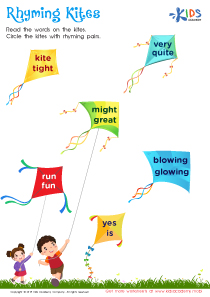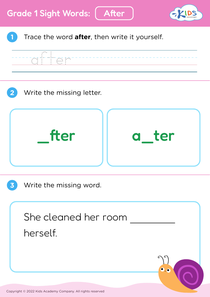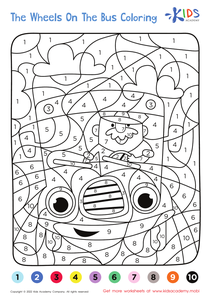Vocabulary Building Grade 1 Reading Comprehension Worksheets
7 filtered results
-
From - To
Empower your first grader's language skills with our "Vocabulary Building Grade 1 Reading Comprehension Worksheets." Designed to introduce young learners to essential vocabulary, these worksheets foster comprehension, reading fluency, and critical thinking. Each activity features engaging texts and exercises that encourage children to explore new words in context, enhancing their understanding and usage. Perfect for classroom or home learning, our worksheets are a fun and interactive way to build a strong vocabulary foundation. Visit Kid’s Academy to download and start boosting your child's word power today!
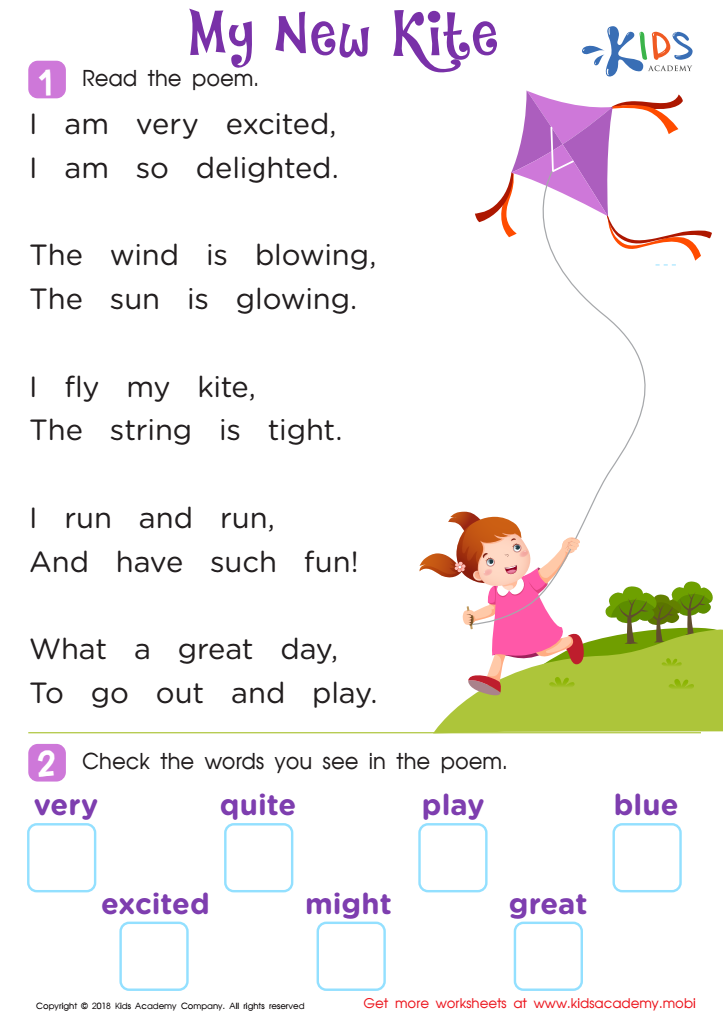

Poem: My New Kite Worksheet
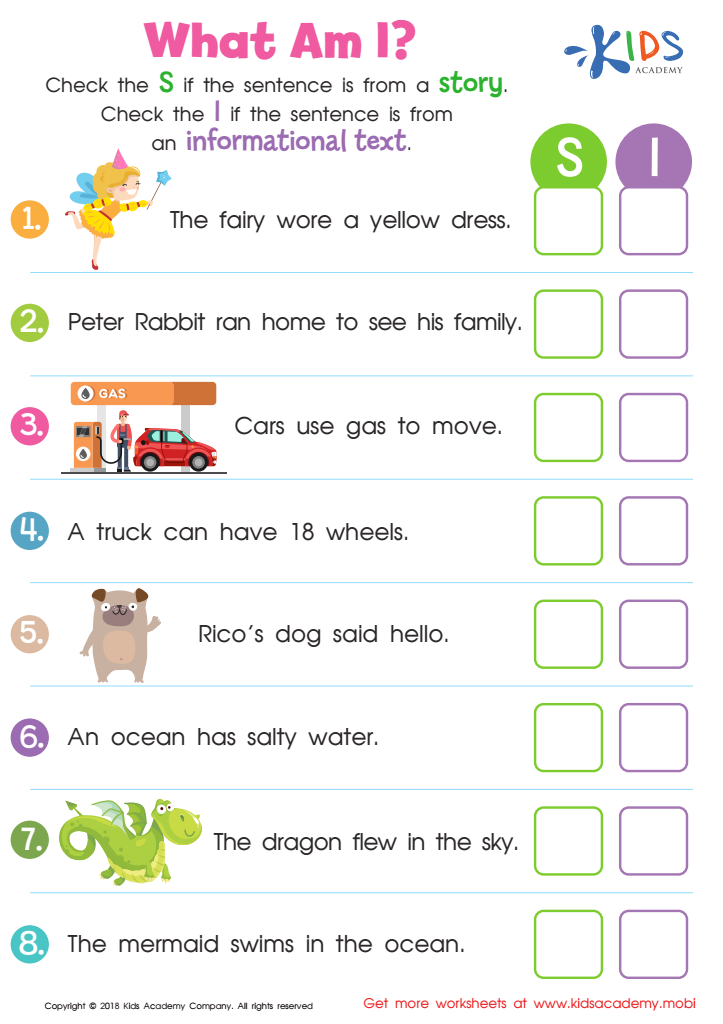

What Am I? Worksheet
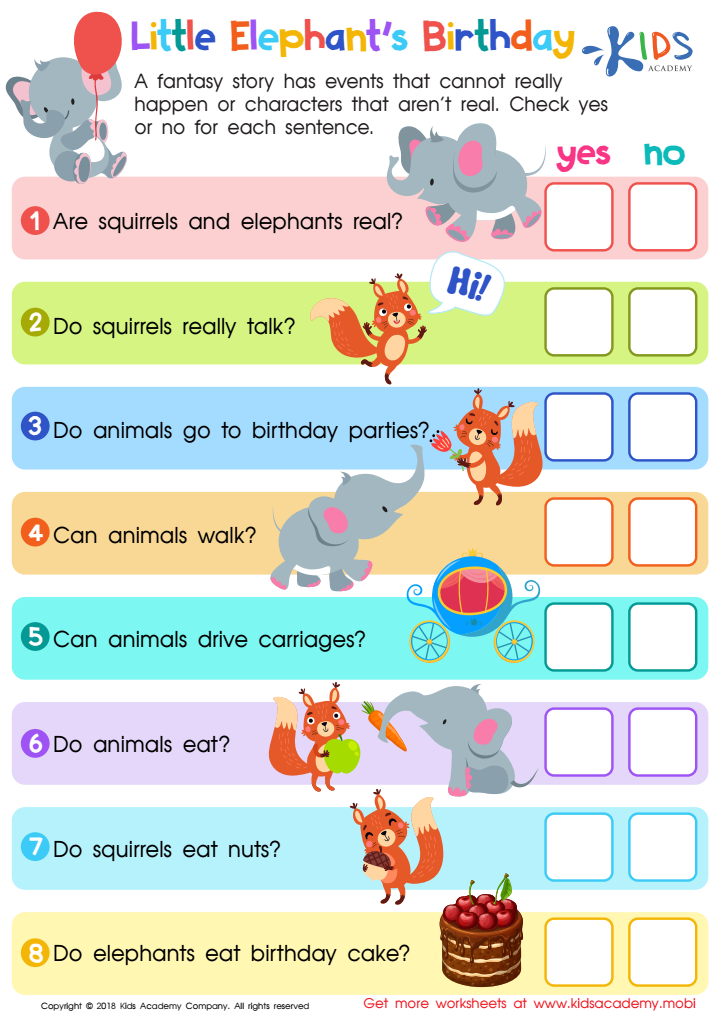

Little Elephant's Birthday Worksheet
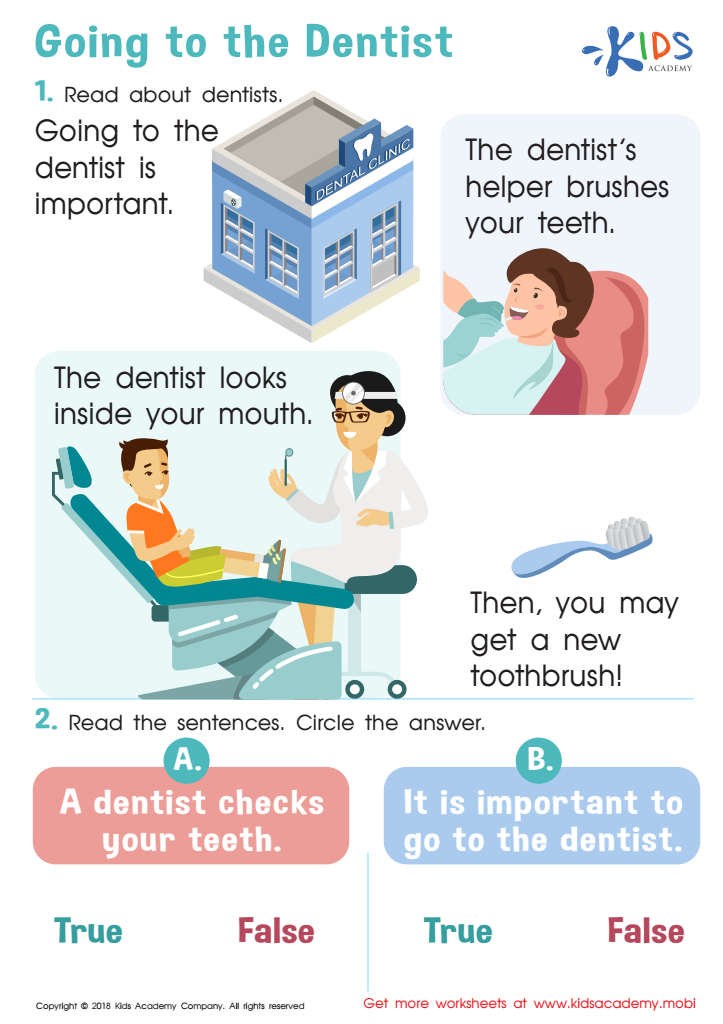

Going to the Dentist Part 2 Worksheet
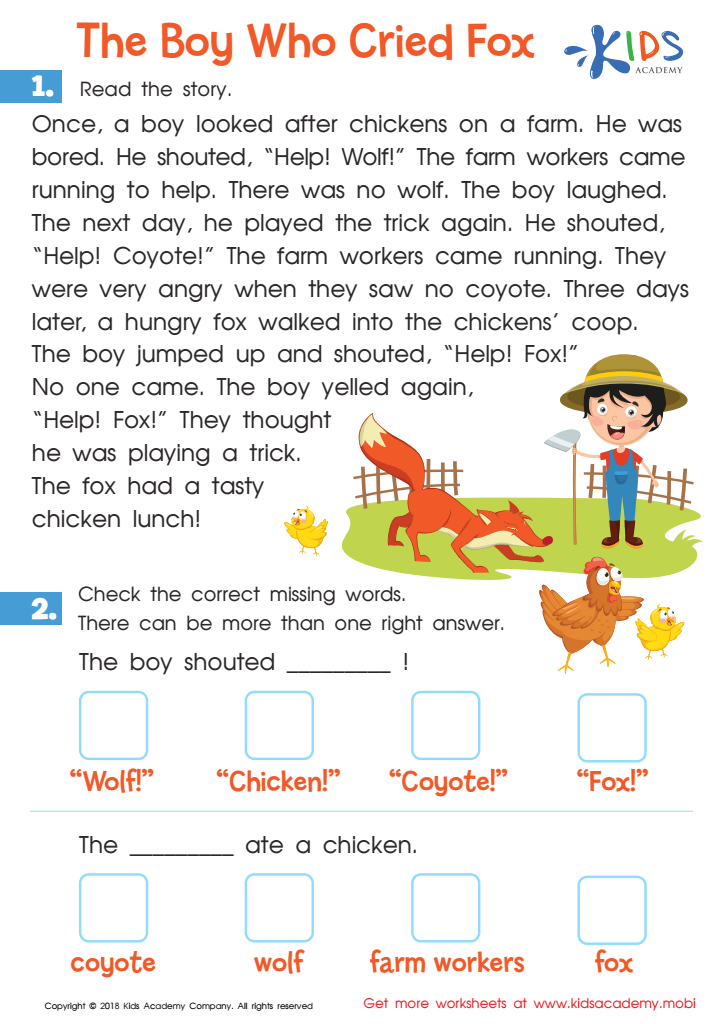

The Boy Who Cried Fox Worksheet
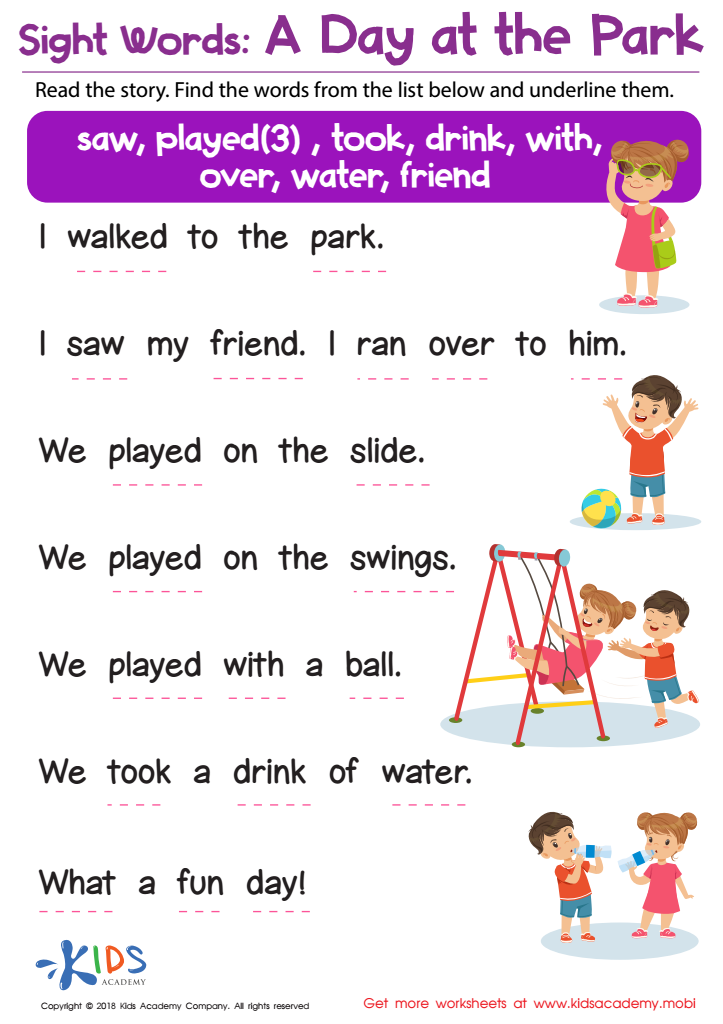

Sight Words: A Day at the Park Worksheet
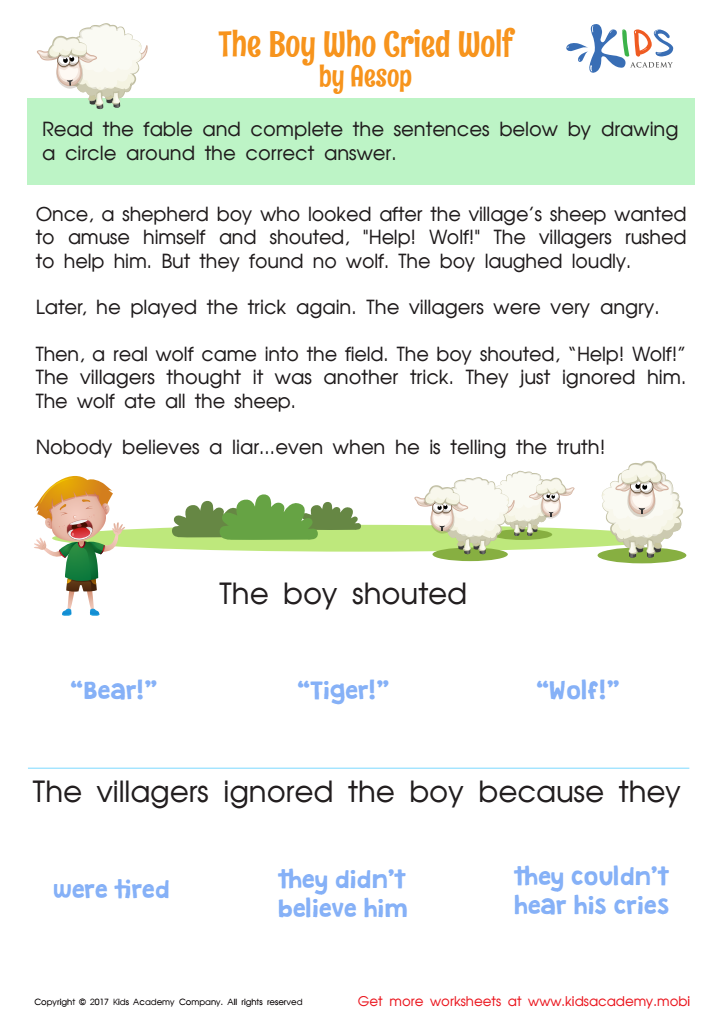

The Boy Who Cried Wolf Worksheet
Vocabulary building and reading comprehension are critical components of early literacy, and they hold immense importance in a first grader's academic and life-long success. A rich vocabulary forms the foundation for effective communication, comprehension, and learning across all subjects. When children understand more words, they can better grasp the meanings of sentences, stories, and diverse concepts.
Parents and teachers should prioritize vocabulary and reading exercises because these skills are incredibly intertwined. As first graders begin to read more independently, their ability to understand and process information relies heavily on their vocabulary knowledge. Enhancing this vocabulary ensures that children can follow along and engage with the stories and texts they encounter.
Increased vocabulary also supports better spelling, writing, and verbal expression. It enables children to articulate their thoughts clearly, ask meaningful questions, and participate actively in classroom discussions. Moreover, early literacy skills predict academic achievement in later grades, boosting overall confidence and fostering a love for learning.
Through fun and interactive activities like reading books, playing word games, and engaging in conversations, parents and teachers can stimulate interest in new vocabulary. Investing time in vocabulary building in first grade ultimately sets the stage for future educational success and lifelong learning.
 Assign to My Students
Assign to My Students










